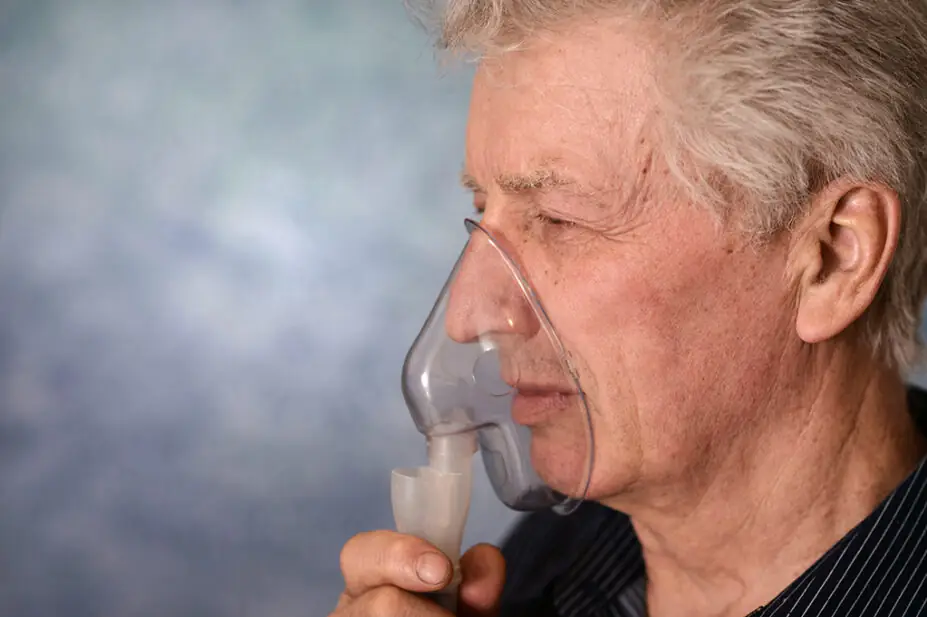
Shutterstock.com
The Medicines and Healthcare products Agency (MHRA) has authorised the use of a new drug for the treatment of uncontrolled COPD.
Dupilumab (Dupixent; Sanofi) is a monoclonal antibody that inhibits the signalling of the interleukin-4 (IL4) and interleukin-13 (IL13) pathway, reducing type 2 inflammation observed in 30–40% of patients with COPD.
In a statement issued on 11 September 2024, Sanofi said the MHRA had granted marketing authorisation for the subcutaneous injection as an add-on maintenance treatment for adults with uncontrolled COPD following positive results from two phase III clinical trials.
The more recent of the two trials — the ‘NOTUS’ trial, published on 20 May 2024 in The New England Journal of Medicine — included data from 935 patients who were randomised to receive dupilumab or placebo as add-on maintenance treatment for COPD with evidence of type 2 inflammation, which is indicated by elevated blood eosinophil counts.
Over the year-long trial period, the results showed that patients receiving dupilumab had a 34% reduction in moderate or severe COPD exacerbations, improved lung function (pre-bronchodilator FEV1: 160mL and 139mL at 12 weeks compared to 77mL and 57mL for placebo), greater health-related quality of life and reduction in severity of respiratory symptoms compared with baseline.
The researchers noted that incidence of adverse events was similar between the two groups and consistent with the known safety profile of dupilumab in its other approved indications — severe asthma and severe atopic dermatitis.
Most common side effects included injection site reactions, conjunctivitis, conjunctivitis allergic, arthralgia, oral herpes and eosinophil.
Commenting on the approval, Anna Murphy, consultant respiratory pharmacist at University Hospitals of Leicester NHS Trust, said: “This is exciting news for people with COPD. Dupilumab, depending on NICE [National Institute for Health and Care Excellence approval] and commissioning, will offer an additional treatment for a subset of COPD patients who have type 2 inflammation.
“It is important and best practice to ensure that existing treatment is optimised before stepping up treatment, particularly with any high-cost biologic treatment, such as optimising inhaler technique and adherence.
“A significant 34% reduction in exacerbations will reduce the burden of current oral corticosteroid prescribing to COPD and the impact of hospital admissions for exacerbations to the NHS and our patients,” said Murphy.
In the UK, COPD is reported to affect around 3 million people. It is the second largest cause of emergency admission at around 130,000 admissions each year and accounts for around 1.4 million GP consultations a year. In 2021, there were 21,701 deaths owing to COPD in England.
COPD is a name for a group of lung conditions that cause breathing difficulties such as emphysema (damage to the air sacs in the lungs) and chronic bronchitis (long-term inflammation of the airways).
Henry Gregg, director of external affairs at Asthma + Lung UK, said: “In recent years little progress has been made in finding new treatments for COPD. It is therefore incredibly positive for some people affected by uncontrolled COPD that dupilumab has been approved by the MHRA.
“This treatment has the potential to improve the quality of life for many people with this type of COPD and help manage this progressive and debilitating condition.
“Dupilumab has already been approved by the European Medicines Agency, so it’s good to see the UK follow suit and approve access to this new biologic treatment, which could make a real difference to the lives of people living with COPD.
“It will now be up to the National Institute for Healthcare and Care Excellence (NICE) to see if the use of dupilumab will be recommended for use by the NHS,” he added.
In December 2021, dupilumab was approved by NICE for treatment of severe asthma with type 2 inflammation in people aged 12 years and over, following results from a randomised trial that revealed how the drug reduced asthma exacerbations in children by almost 60%.
The MHRA’s decision follows the European Medicines Agency’s approval in July 2024, which was the first regulatory authority globally to approve dupilumab for COPD.


